
Artificial intelligence may be useful in screening for prostate cancer in patients with elevated prostate specific antigen levels who have undergone MRI, according to Wayne G. Brisbane, MD.

Your AI-Trained Oncology Knowledge Connection!


Artificial intelligence may be useful in screening for prostate cancer in patients with elevated prostate specific antigen levels who have undergone MRI, according to Wayne G. Brisbane, MD.
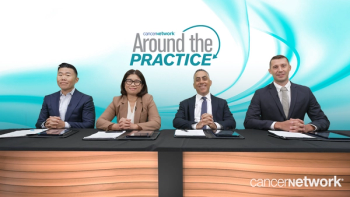
Daniel Ahn, DO, and Tanios Bekaii-Saab, MD, detail the findings of the DESTINY-CRC02 trial, which examined the efficacy of trastuzumab deruxtecan at different dosing levels in breast cancer and gastric cancer patients.
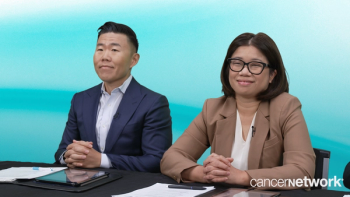
Christina Wu, MB, BCh, MD, shares the study design and efficacy data of the MOUNTAINEER-01 study, which explored combination tucatinib plus trastuzumab for the treatment of patients with HER2+ metastatic colorectal cancer.
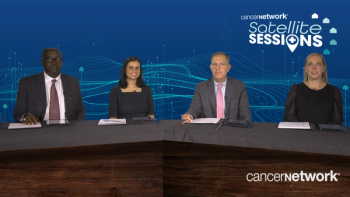
A comprehensive overview of emerging data from the KarMMa-3 and CARTITUDE-4 studies on CAR T-cell therapy in relapsed/refractory multiple myeloma.

A panel of experts discuss treatment and CAR T-cell therapy options for patients with relapsed/refractory disease who have limited treatment choices.

Michael Rosenzweig, MD, MS, presents the clinical scenario of a 61-year-old woman with relapsed/refractory multiple myeloma for panel discussion.
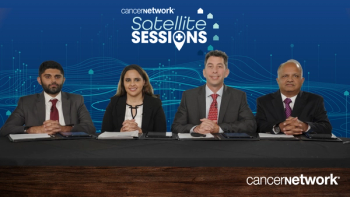
Expert panelists discuss the options for preventing bone disease in patients with multiple myeloma, including osteonecrosis of the jaw.
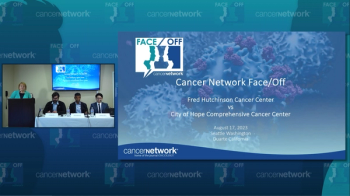
Expert insights into tailoring treatment for biochemical relapse in multiple myeloma patients, considering disease progression and the impact of various therapy lines on treatment decisions.

An insightful discussion among specialists about the challenges of treating biochemical relapse and MRD resurgence in multiple myeloma patients, exploring nuanced considerations, patient collaboration, and the evolving landscape of treatment strategies.

Experts discuss dosing strategies and risk factors for arterial occlusive events in ponatinib treatment for chronic myeloid leukemia, emphasizing the importance of balancing disease control and patient safety.

An expert explores findings of the OPTIC study, revealing optimal dosing strategies for ponatinib in CML treatment, including insights into dose reduction and patient response based on T315I mutation status.

With the approval of momelotinib by the FDA, the updated use for its role in myelofibrosis will potentially change clinical practice, according to Ruben Mesa, MD.
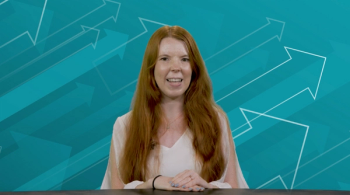
The August CancerNetwork Snap Recap takes a look back at key FDA news updates, as well as expert perspectives on the chemotherapy shortage.
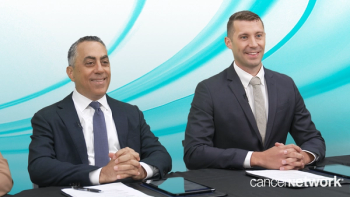
Daniel Walden, MD, presents the scenario of a 65-year-old man diagnosed with HER2+ metastatic colorectal cancer to the expert panel for discussion.

Experts emphasize the importance of acquiring both tissue and circulating tumor DNA (ctDNA) for molecular testing in patients with metastatic colorectal cancer, address challenges such as lack of tissue and costs, and highlight the role of HER2 as a biomarker.

Expert perspectives on assessing frailty for patients with multiple myeloma and its effect on treatment decisions.

Clinical insights on treatment options and strategies for patients with multiple myeloma who are not eligible for transplant.

Focused discussion on tailoring treatment decision-making for patients with multiple myeloma classified as frail.

A panel of experts explain how they select between the DRd (daratumumab, lenalidomide, dexamethasone) and VRd (bortezomib, lenalidomide, dexamethasone) treatment regimens for patients with transplant-ineligible newly diagnosed multiple myeloma.

The panel shares new therapies for the treatment of chronic graft-versus-host disease they look forward to seeing in the future.

Andrew Cowan, MD, discusses the complexities of relapsed multiple myeloma, distinguishing between biochemical and clinical progression, analyzing survival data, and raising questions about optimal treatment strategies.

An overview of the program agenda and introduction of expert panelists from the Fred Hutchinson Cancer Center and City of Hope teams.

A retrospective analysis of arterial occlusive events in the PACE trial, shedding light on risk factors and management strategies for ponatinib treatment in CML patients.

An overview of the program agenda and introduction of expert panelists from the Fred Hutchinson Cancer Center and City of Hope teams.
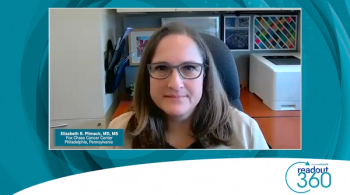
Closing out their program on renal cell carcinoma management, key opinion leaders share closing thoughts on emerging therapies and how the field is evolving.

Daniel Ahn, DO, discusses the evolution of biomarker testing in metastatic colorectal cancer, highlighting the shift from understanding only the prognostic implications of genetic alterations to recognizing their predictive role in targeted therapies, and emphasizes the potential of circulating tumor DNA for rapid diagnosis and assessing treatment response.

Tanios Bekaii-Saab, MD, and colleagues address updates in metastatic colorectal cancer treatment, highlighting its prevalence in the U.S., the concerning rise in younger patients, and the ongoing uncertainty regarding the causes of this trend, with potential factors like environment and microbiome under investigation.

The expert panel discusses factors that influence referral to transplant as well as selecting maintenance and consolidation therapies for patients with multiple myeloma.

Key opinion leaders in the field of multiple myeloma review data looking at patient outcomes in the GRIFFIN and MASTER trials based on cytogenetic abnormalities.
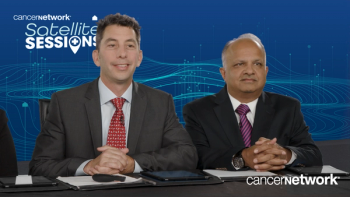
Michael Rosenzweig, MD, MS, presents the clinical scenario of a 68-year-old man with transplant-ineligible newly diagnosed multiple myeloma to the expert panel for discussion.